Dallas real estate trends: Co-living and shared spaces
The Dallas real estate market has seen significant evolution in recent years, particularly with the rise of co-living and shared spaces. These innovative housing models are reshaping how people live, work, and interact in urban environments. Co-living and shared spaces offer flexible, community-focused living arrangements that appeal to a diverse range of residents, from young professionals to remote workers. This article delves into the trends, benefits, challenges, and future prospects of co-living and shared spaces in Dallas.
The Emergence of Co-living in Dallas
Co-living is a modern form of communal living where residents share living spaces and amenities while maintaining private bedrooms. This concept has gained traction in Dallas due to its affordability, convenience, and the sense of community it fosters.
Affordability and Cost Savings
One of the primary drivers behind the popularity of co-living is affordability. Traditional rental markets in major cities like Dallas can be prohibitively expensive, particularly for young professionals and students. Co-living spaces typically offer all-inclusive pricing that covers rent, utilities, and other amenities, making it easier for residents to manage their budgets. This model not only reduces individual financial burdens but also maximizes the use of space and resources.
Convenience and Flexibility
Co-living spaces in Dallas are designed to be convenient and flexible. Many co-living providers offer furnished apartments with flexible lease terms, catering to the needs of individuals who may not want to commit to long-term leases. This flexibility is particularly appealing to remote workers, freelancers, and digital nomads who value the ability to move and adapt quickly without the hassle of setting up and dismantling an apartment.
Community and Networking
At the heart of the co-living concept is the sense of community it fosters. Residents of co-living spaces often engage in regular social events, workshops, and communal activities. These interactions promote networking, collaboration, and the development of lasting friendships. For newcomers to Dallas or those looking to expand their social circles, co-living offers a built-in community that can ease the transition to a new city.
The Rise of Shared Workspaces
In parallel with the growth of co-living, shared workspaces have become increasingly popular in Dallas. These spaces offer flexible, communal environments where individuals and businesses can rent office space on a short-term basis. The rise of remote work and the gig economy has fueled the demand for these dynamic work environments.
Flexibility for Businesses and Individuals
Shared workspaces provide businesses and individuals with the flexibility to scale up or down as needed. For startups and small businesses, these spaces offer a cost-effective alternative to traditional office leases. Freelancers and remote workers benefit from the professional environment and amenities that shared workspaces provide, without the isolation of working from home.
Collaboration and Innovation
Shared workspaces are designed to foster collaboration and innovation. By bringing together professionals from various industries and backgrounds, these environments create opportunities for networking, partnership, and knowledge sharing. Many shared workspaces in Dallas host events, workshops, and seminars that encourage interaction and learning, further enhancing the collaborative atmosphere.
Amenities and Services
Modern shared workspaces come equipped with a range of amenities and services that enhance productivity and work-life balance. High-speed internet, meeting rooms, and office supplies are standard offerings. Some spaces also provide wellness programs, on-site cafes, and recreational areas, making them attractive to a wide range of professionals.
Challenges and Considerations
While co-living and shared workspaces offer numerous benefits, there are also challenges and considerations to address.
Privacy and Personal Space
One of the main concerns with co-living is the potential lack of privacy. Sharing common areas and amenities with others can sometimes lead to conflicts and discomfort. It’s crucial for co-living providers to establish clear guidelines and communication channels to address these issues and ensure that residents feel respected and comfortable in their living environment.
Regulatory and Zoning Issues
The rise of co-living and shared workspaces has outpaced regulatory frameworks in many cities, including Dallas. Zoning laws, building codes, and other regulations may not always accommodate these new housing models. It is essential for developers and city planners to collaborate and update regulations to support the growth of co-living and shared workspaces while ensuring safety and compliance.
Market Saturation and Competition
As co-living and shared workspaces become more popular, there is a risk of market saturation. Increased competition among providers can lead to a race to the bottom in terms of pricing and quality. To stand out, co-living and shared workspace providers must focus on offering unique amenities, fostering strong communities, and maintaining high standards of service.
Case Studies and Examples
Several successful co-living and shared workspace models in Dallas illustrate the potential of these trends.
Common Desk
Common Desk is a prominent provider of shared workspaces in Dallas. With multiple locations across the city, Common Desk offers flexible office solutions for freelancers, startups, and established businesses. Their spaces are designed to foster community and collaboration, with amenities such as high-speed internet, meeting rooms, and social events. Common Desk also emphasizes wellness, offering yoga classes, fitness facilities, and healthy snacks.
Bungalow
Bungalow is a co-living company that has expanded its presence in Dallas. Bungalow offers furnished homes with private bedrooms and shared common areas, catering to young professionals seeking affordable and convenient living arrangements. Their all-inclusive pricing covers rent, utilities, and weekly cleaning services. Bungalow also organizes social events and activities to help residents connect and build a sense of community.
WeWork
WeWork, a global leader in shared workspaces, has several locations in Dallas. WeWork provides a range of office solutions, from hot desks to private offices, with flexible lease terms. Their spaces are designed to promote productivity and collaboration, featuring amenities such as high-speed internet, conference rooms, and communal areas. WeWork also hosts networking events, workshops, and wellness programs to support the professional and personal growth of its members.
The Future of Co-living and Shared Spaces in Dallas
The future of co-living and shared spaces in Dallas looks promising, with several factors contributing to their continued growth and evolution.
Increasing Demand for Flexibility
The demand for flexible living and working arrangements is likely to continue rising. As remote work becomes more prevalent and the gig economy expands, individuals and businesses will seek out adaptable housing and workspace solutions. Co-living and shared spaces are well-positioned to meet this demand, offering the convenience and flexibility that modern lifestyles require.
Technological Advancements
Advancements in technology will play a significant role in the evolution of co-living and shared spaces. Smart home technology, for example, can enhance the convenience and efficiency of co-living arrangements. Automation, app-based management systems, and other technological innovations can streamline operations and improve the resident experience. Similarly, shared workspaces can leverage technology to provide seamless connectivity, advanced security, and enhanced productivity tools.
Sustainable and Eco-friendly Practices
Sustainability is becoming an increasingly important consideration in real estate development. Co-living and shared workspace providers in Dallas are likely to incorporate eco-friendly practices and green building standards into their designs. Energy-efficient appliances, renewable energy sources, and sustainable materials can reduce the environmental impact of these spaces and appeal to environmentally conscious residents and businesses.
Evolving Community Needs
The needs and preferences of communities are continually evolving. Co-living and shared workspace providers must remain attuned to these changes and adapt their offerings accordingly. This could involve creating more inclusive and diverse communities, offering specialized services and amenities, or developing new models that cater to different demographics and lifestyles.
Co-living and shared spaces represent a significant shift in the Dallas real estate market, offering innovative solutions that address the evolving needs of residents and businesses. These trends provide numerous benefits, including affordability, convenience, community, and flexibility. However, they also present challenges that must be addressed, such as privacy concerns, regulatory issues, and market competition.
Successful co-living and shared workspace models in Dallas, such as Common Desk, Bungalow, and WeWork, demonstrate the potential of these housing and working arrangements. Looking ahead, the future of co-living and shared spaces in Dallas is bright, driven by increasing demand for flexible solutions, technological advancements, sustainability practices, and evolving community needs.
As the real estate landscape continues to evolve, co-living and shared spaces are likely to play an increasingly important role in shaping how people live and work in Dallas. By embracing these trends and addressing their challenges, the city can foster vibrant, inclusive, and dynamic communities that enhance the quality of life for all residents.
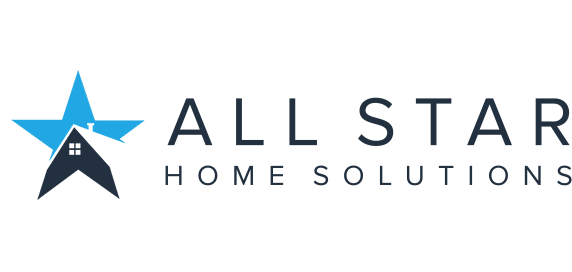
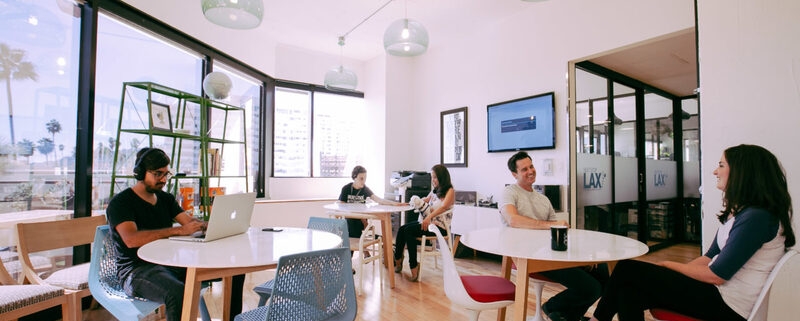

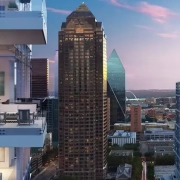
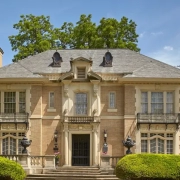
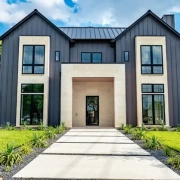
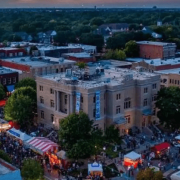

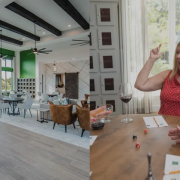







Leave a Reply
Want to join the discussion?Feel free to contribute!